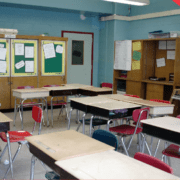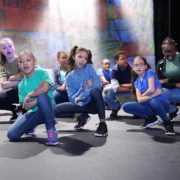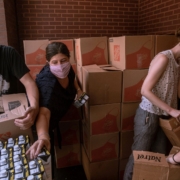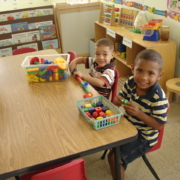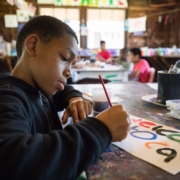For over 150 years, The New York Foundling has worked in partnership with our neighbors to ensure that everyone can meet their full potential when facing challenging situations. This hasn’t changed, and our staff continue to provide life-changing and meaningful support in light of the COVID-19 pandemic. This series shares how The Foundling’s many programs are responding to the needs of their community.
Four years ago, a partnership was created by The New York Foundling which brought together New York City’s Administration of Children’s Services (ACS) and the City University of New York (CUNY) with the goal to help more young people in foster care attend college and earn a college degree. This partnership is more commonly known as The Dormitory Project. The program provides a wide range of supports – academic, social, financial, and professional – to ensure students graduate from college. Students are supported by College Success Coaches, who live alongside them on CUNY campuses across New York City and are deeply attuned and trained to respond to the challenges and stressors that young people in foster care face. The Dormitory Project also includes academic support led by a team of tutors who ensure that each student is prepared to do well in their classes, develop effective study habits, choose a major, and identify a long-term academic plan.
Since the outbreak of COVID-19, The Foundling’s dedicated staff have worked tirelessly to help students adjust to remote learning and support those who are facing further hurdles and obstacles so they have an equal shot at educational success.
Before COVID-19, the achievement gap between students in foster care and their peers was already significant. Now, says Joni Rivera, who oversees The Foundling’s Dormitory Project, “students and staff face challenges exacerbated by COVID-19.” Staff spent the first month of the outbreak trying to get students access to technology, adjust to a remote learning format, and stay on track with their courses. But it’s been tough.
“Not only are they switching over to remote learning, they also had to worry about finding a place to live mid-semester and move,” says Joni, “It had an impact on their learning.”
In March, when CUNY campuses shut down, The Foundling’s staff helped its Dormitory Project students find new places to live for the short term—this ranged from family and friends, to foster families, and if that wasn’t possible, limited housing at Queens College remained available.
“CUNY has been incredibly supportive through the pandemic,” says Elizabeth Tremblay, who currently acts as the director of The Dormitory Project, and is an Associate Vice president for The Foundling’s School Based Mental Health Services. “When we couldn’t find alternative summer housing for about 40 students, CUNY graciously agreed to keep one of their dormitories open and house them there. CUNY is also letting our students store some of their belongings in secure places on campus, especially since many have moved into housing arrangements where there isn’t a lot of extra space.”
All tutoring sessions and meetings with College Success Coaches are now done online. Students connect with them on a weekly basis for career counseling, educational advocacy training, and help navigating personal and peer conflicts. Students are also hearing from their tutors on a daily basis, which is an increase from the weekly sessions that took place before COVID-19. Typical tutoring sessions last one to two hours, depending on the students’ needs.
However, the transition from in-person meetings and learning to remote formats was harder for some students than others. “Some students were stressed and frustrated,” says Joni, “It was just difficult in the beginning.”
However, tutors were able to reel in struggling students and get them back on track. “Overall, we saw an increase in student engagement and participation,” Joni continues, “and real progress with students advocating for themselves. That is, students talking to their professors about problems they were having, asking for extensions, and make-up work.”
As a result, the program reported a lot of A’s and B’s on student final exams and – in very exciting news – thirteen students graduated this spring: ten with associates degrees, and three with a four-year degree. These results “really shine a light on how important it is for older youth in foster care to have someone in their lives who will advocate for their education,” Joni says.
CUNY is now offering credit/no credit courses, and program staff are helping students decide which to choose, as well as register for summer and fall classes. Online learning will continue through the summer and possibly also the fall.
“The work we do has a profound effect, especially during these difficult times,” Joni adds, “A huge push from our staff brought students who fell off the map back around. If it weren’t for them, these struggling students might have dropped out. So, we’re really giving these kids a fighting chance.”
“But our students are resilient, too,” Elizabeth says, “COVID-19 has highlighted that with support and the right people around them, older youth in foster care can acclimate to change and achieve successful outcomes in education no matter what their circumstances.”
To learn more about how The New York Foundling is responding to the COVID-19 pandemic in New York, visit our emergency response page. Stay tuned for more stories from the frontlines as we continue to support our neighbors on paths to stability and strength.
Read past posts in the ‘Our Work Continues’ blog series:

